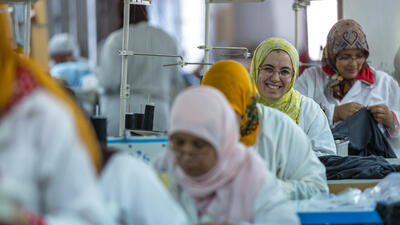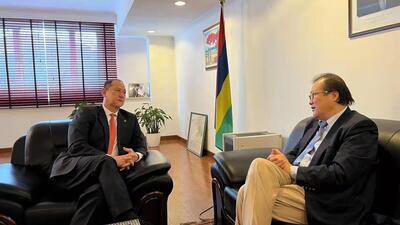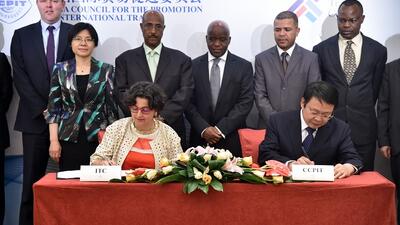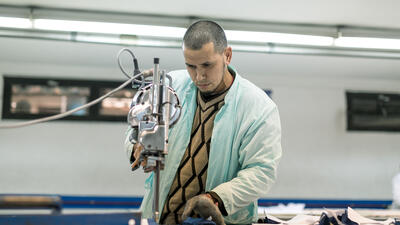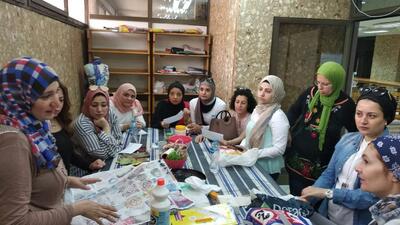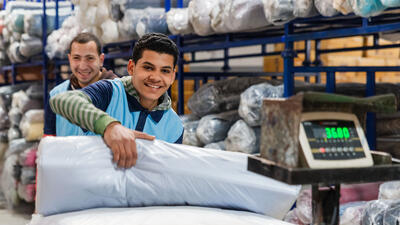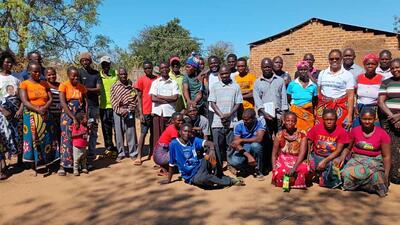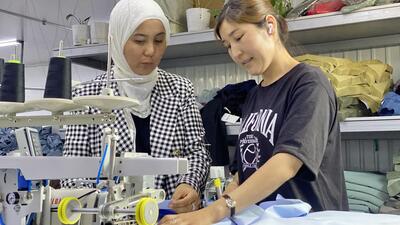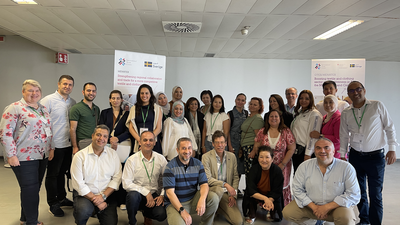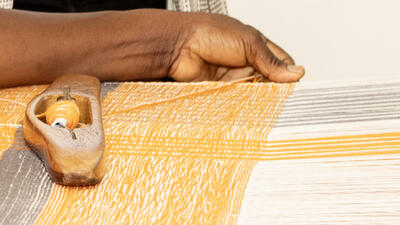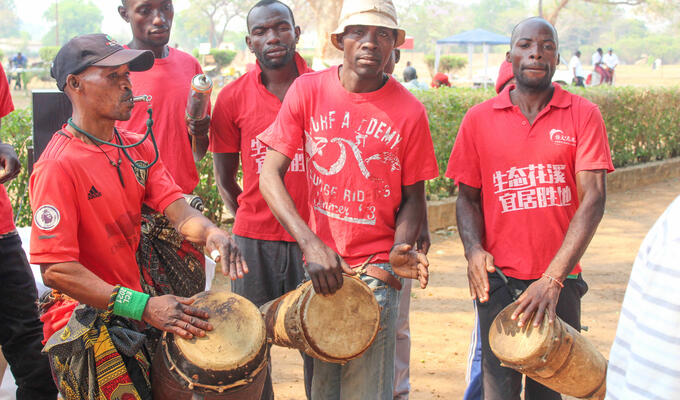
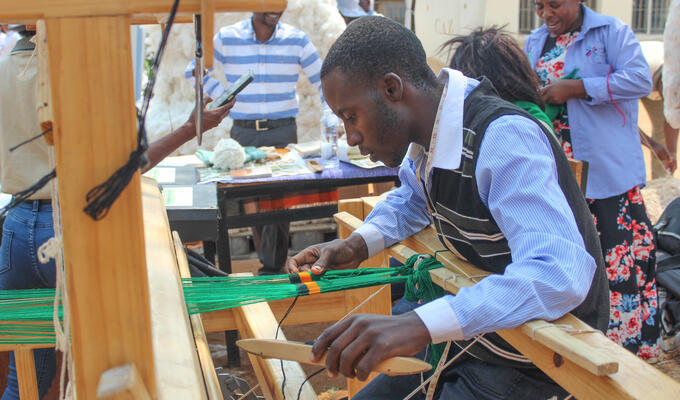
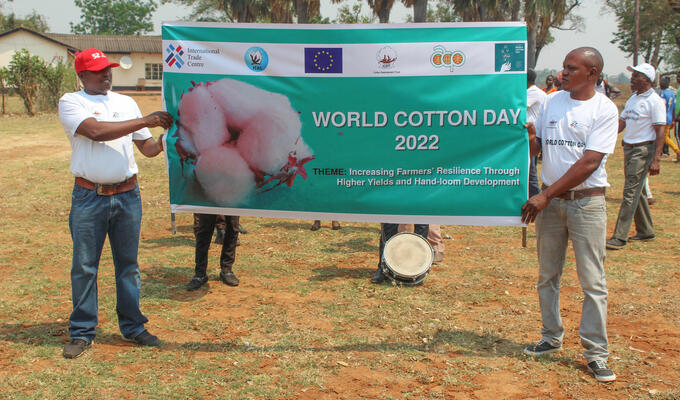
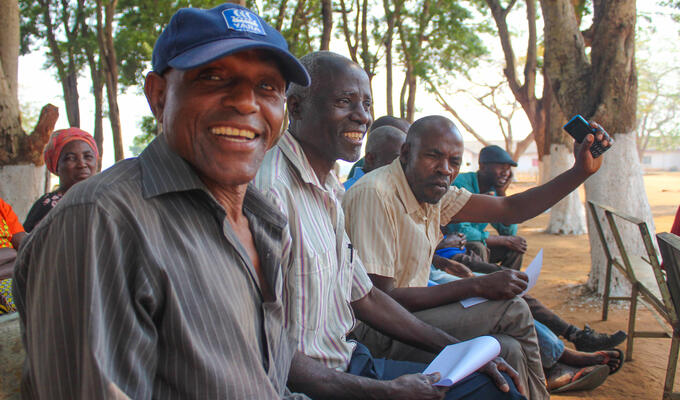
World Cotton Day: Weaving a better future for cotton
ITC celebrates World Cotton Day for the first time in Zambia
World Cotton Day is a special day. For the second time, 7 October was celebrated as the official international UN Day acknowledging the importance of cotton worldwide. This year’s theme was “World Cotton Day: Weaving a better future for cotton”.
World Cotton Day has prompted the International Trade Centre (ITC) to reflect and celebrate its work in Africa as well as reaffirm its commitment to continue working on developing the continent’s cotton value chain.
In a video shown during a high-level event organized by the Food and Agriculture Organization of the United Nations (FAO) in Rome, Pamela Coke-Hamilton, ITC Executive Director highlighted: “For the International Trade Centre, cotton is more than a commodity. For us, the cotton-to-clothing value chain is more than just transforming fibre into apparel or home textiles. It’s a way of life. A way to address wider development concerns, to promote decent jobs and environmentally friendly, sustainable, and fairly priced products.”
The Executive Director focused her speech on two important areas for ITC, value addition and environmental sustainability. The focus was also on Africa, where ITC has a strong presence and footprint. “By helping Africans add and retain more value, we create employment, especially for women and young people, improving the livelihoods of thousands.”
Video
World Cotton Day in Zambia
Under the ACP programme, ITC celebrated World Cotton Day for the first time in Magoye, Zambia, together with 200 participants, including farmers, local leaders, politicians, ginning companies, seed companies, fertilizer suppliers and farm equipment dealers, as well as youth from the surrounding school.
The Cotton Development Trust hosted the event with the support of the Cotton Board of Zambia, and the Cotton Association of Zambia, among others.
As part of the celebration, a video featuring ITC Deputy Executive Director Dorothy Tembo and the partners of the ACP project in the country, emphasized the results achieved by the programme and opportunities of cotton value addition and by-products:
“In Zambia, ITC has been supporting artisanal value addition by way of introducing handloom technology and hand spinning. More than 1000 farmers, mainly women, have been trained and are able to add value to their own cotton. We also see important opportunities for youth employment. The impact on the wider society of this increased employment will be tangible,” said Tembo.
She added: “Cotton by-products also have the potential to transform waste into profitable products. For example, gin waste into sanitary bags for hospitals, or stalks into briquettes or pellets replacing firewood. This is circular economy in action.”
Video
During the event, a youth group also had the chance to present their poems on cotton, and testifying that cotton has contributed significantly to their households. Through cotton they can now pay fees and requisites for school.
The farmers’ spokesperson requested the Zambian Government to address the pricing of seed cotton and the extension services. The Government replied with the intention to revamp the cotton and textiles industry.
About the Programme
The ACP Business-Friendly Programme is funded by the European Union and the Organisation of African, Caribbean and Pacific States (OACPS) and jointly implemented by the International Trade Centre through its Alliances for Action programme, the World Bank and UNIDO.
It seeks to improve the ability of agribusiness firms in ACP countries to compete, grow and prosper in domestic, regional and international markets. Through the Alliances for Action approach, it promotes inclusive and sustainable agricultural value chains that value all stakeholders from farm to shelf.
Alliances for Action is an ITC initiative that seeks to transform food systems through producer partnerships that cultivate ethical, climate-smart, sustainable agricultural value chains.






